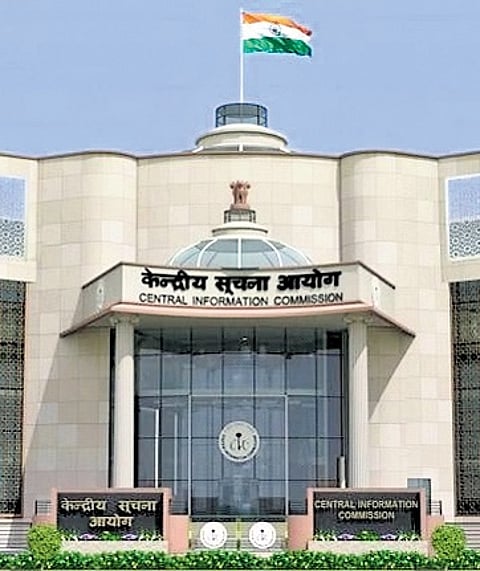

NEW DELHI: A year after the Supreme Court directed the Central and the state governments to take immediate steps to fill the vacancies in the Central Information Commission (CIC) and state information commissions (SICs), the transparency watchdog is functioning with reduced capacity, leading to inordinate delays in resolving RTI cases and backlog of complaints.
According to figures presented by civil society group Satark Nagrik Sangathan, spearheaded by RTI activist Anjali Bhardwaj, there are over four lakh cases pending across 29 information commissions nationwide as of June 30. Incidentally, the Right to Information (RTI) Act marked its 19th anniversary this month.
At present, eight positions of information commissioners are vacant in the panel.
Under the RTI Act, the CIC shall consist of the Chief Information Commissioner and such number of Central Information Commissioners not exceeding 10 as may be deemed necessary. The same holds true for State Information Commissions (SIC).Currently, the CIC is staffed with only the chief information commissioner and two ICs.
Meanwhile, a recent RTI query by activist Commodore Lokesh Batra has revealed that the CIC has received 161 applications for eight posts of vacant ICs, though the government is yet to take any action.
Recently, Congress leader P Chidambaram flagged the vacancies and accused the Central government of dealing a “death blow” to the RTI Act by not appointing information commissioners. “Eight posts of Information Commissioners are vacant. Why? Is it because the RTI Act has been used to pierce the veil of the government and hold the government to account?,” he asked.
Chidambaram alleged that the Centre amended the RTI Act and changed the rules governing the conditions of service of Information Commissioners — all with the intention of crippling the role of the RTI Act. “The surest way to cause a death blow to the RTI Act is to not appoint Information Commissioners,” he said, adding that the vacancies hinder the smooth functioning of the information commission
The SC also echoed similar sentiments. The Apex court observed that the 2005 law on the right to information would become a “dead letter” if no action were taken to fill vacant posts in SIC and CIC.
“The Right to Information Act of 2005 will become a dead letter,” the CJI had said.
Flagging the issue, the National Campaign for Peoples’ Right to Information (NCPRI) had written to PM Narendra Modi and LoP Rahul Gandhi in July this year on filling the vacancies in the CIC.
“NCPRI is concerned to note that the CIC is functioning with only the chief information commissioner and two information commissioners. Eight posts of information commissioners are lying vacant, even as the backlog of appeals/complaints currently stands at nearly 23,000 and is steadily increasing,” said the letter.
“It is extremely worrying that for several months the CIC has been functioning at a reduced capacity. This negates the very purpose of the RTI Act, which is to ensure time-bound access to information,” it added.